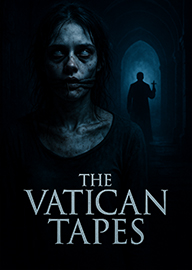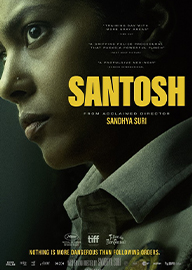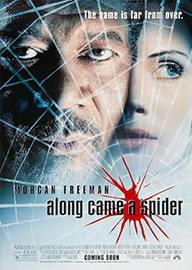Innocent Thing
- 6
- Romance
- 2014
- 1h 58m
- 14+
a South Korean psychological thriller directed by Kim Tae-gyun. Starring Jang Hyuk and Jo Bo-ah, the film follows a married physical education teacher whose life spirals into chaos when a dangerously obsessed student begins crossing boundaries, blurring the line between affection and obsession in this gripping tale of desire, temptation, and destruction.













Comments
0Reviews
0Summery
1Please sign in to comment.
Please sign in to review.
Innocent Thing (2014) is a South Korean psychological thriller that examines the dangerous consequences of obsession, desire, and temptation when boundaries between student and teacher are crossed. Directed by Kim Tae-gyun, known for his ability to create emotionally charged narratives, the film stars Jang Hyuk as Joon-ki, a respected physical education teacher at a prestigious high school, and Jo Bo-ah as Young-eun, a charming but increasingly unstable student who becomes dangerously fixated on him. At first, their interactions appear innocent, stemming from a teacher-student relationship, but the film carefully builds tension as Young-eun’s fascination with Joon-ki grows into something far more intrusive and threatening. Joon-ki, a married man with a pregnant wife waiting at home, tries to maintain professional boundaries, but the allure of forbidden attraction, coupled with his own weakness, makes him vulnerable to Young-eun’s advances. This tension creates the foundation for a story that spirals into obsession, manipulation, and ultimate tragedy.
The narrative skillfully captures the slow escalation of Young-eun’s obsession. What begins as playful attention quickly turns into relentless pursuit, as she begins stalking Joon-ki, inserting herself into his personal life, and testing the limits of his patience and morality. Her determination to possess him is portrayed through moments of vulnerability and aggression, showing her as both seductive and unhinged. The film’s strength lies in the way it blurs the line between predator and victim. Joon-ki is initially portrayed as the responsible adult, yet his own lapses in judgment open the door for Young-eun’s increasingly erratic behavior. The dynamic between them evolves into a psychological battle where power shifts back and forth, keeping the audience on edge. Every interaction becomes layered with tension, desire, and danger, making it difficult to discern whether Joon-ki is resisting or secretly feeding into the toxic relationship. This moral ambiguity gives the film its haunting depth and complexity.
Visually, Innocent Thing adopts the stylistic language of a suspenseful psychological thriller. The cinematography emphasizes contrast, often placing moments of intimacy in shadows or framing characters through mirrors, glass, or barriers that symbolize their fractured mental states. The school setting, normally associated with safety and structure, becomes an unsettling environment where boundaries collapse. The pacing is carefully orchestrated, with a gradual build-up that explodes into shocking sequences as Young-eun’s obsession consumes her completely. Jo Bo-ah delivers a chilling performance, embodying both innocence and menace in equal measure, making her character unpredictable and magnetic. Jang Hyuk portrays Joon-ki with nuance, capturing the internal conflict of a man torn between responsibility and temptation. Their chemistry, though disturbing, is undeniable, and it drives the film’s most intense moments. The score enhances the unease, blending soft melodies with escalating tension to highlight the psychological breakdown of the characters.
Since its release, Innocent Thing has become a notable entry in the Korean thriller genre, often compared to Western films like Fatal Attraction but infused with distinct Korean cultural and cinematic sensibilities. While some critics saw it as provocative and controversial, others praised its raw exploration of obsession, morality, and the consequences of crossing forbidden boundaries. The film resonates as a cautionary tale, emphasizing how one lapse in judgment can unravel lives and destroy relationships. At its core, the film examines the destructive power of unchecked desire, portraying obsession not just as a psychological disorder but as a consuming force that devastates both the obsessed and the object of obsession. With its provocative themes, intense performances, and haunting atmosphere, Innocent Thing stands as a compelling example of Korean cinema’s ability to blend psychological depth with gripping suspense. Years after its release, it continues to attract audiences who are drawn to stories that test moral limits, explore human weakness, and reveal the dark consequences of desire when boundaries collapse.